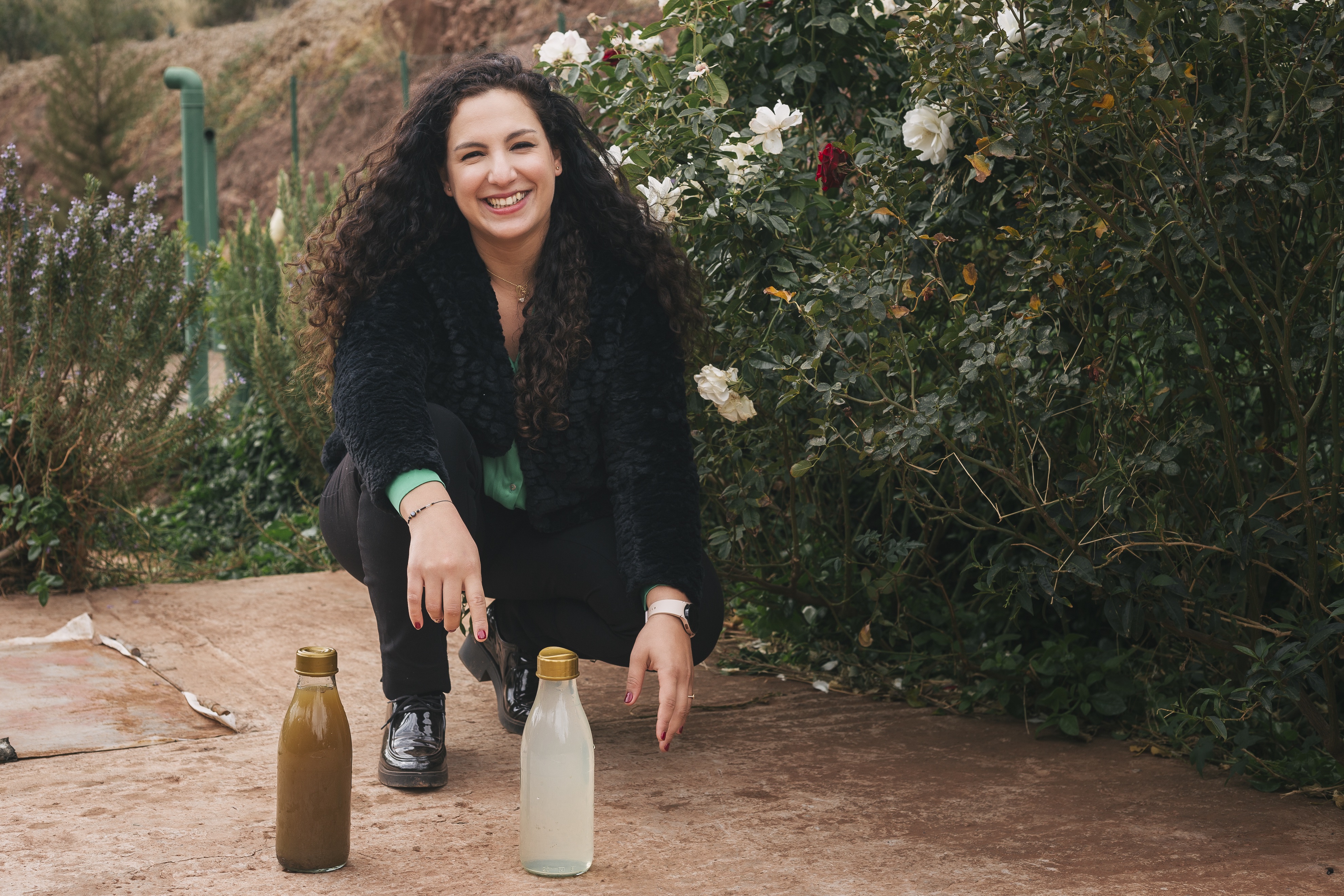Salma Bougarrani, Co-Founder and Chief Executive Officer of GREEN WATECH | 2024 Cartier Women's Initiative Fellow
“When you invest in women solving real problems, you invest in the future of the country.”
This is the message that entrepreneur Salma Bougarrani believes policymakers need to hear.
In Morocco, 14.6 million people living in rural areas face a daily crisis: limited water access, poor sanitation, and contaminated water sources. Untreated wastewater often flows into rivers, posing serious health risks and putting pressure on already-scarce water supplies.
“Many people in these communities only have running water for four hours a day,” says Salma. “We need to mobilise unconventional resources to treat and reuse wastewater – especially for agriculture, which consumes up to 80% of our water.”
Salma’s connection to this issue is personal. During childhood visits to her father’s village, she witnessed the environmental damage caused by untreated wastewater. The experience inspired her to pursue a PhD in water treatment – and eventually to launch GREEN WATECH (short for Green Water Technology). The company offers low-tech, soil-based filtration systems that treat domestic wastewater for agricultural reuse.
Launched in 2018, GREEN WATECH offers a practical, affordable solution tailored for rural communities. The filtration system works passively, without electricity, and removes contaminants through natural biological processes. The treated water can then be reused to irrigate crops, reducing fresh water consumption by up to 70% and supporting local food production.
“It’s a low-tech, passive solution,” explains Salma. “That’s key for rural communities that can’t afford high energy costs.”
The system is also designed to be simple to operate, require minimal maintenance, and last up to 20 years. Salma’s team engages each village through pre-installation training sessions to ensure community ownership and long-term success.
“We work through a participatory approach,” she says. “That’s why our system keeps working long after we leave.”
To date, GREEN WATECH has served more than 80,000 people across 32 rural communities, helping to treat over 600 million litres of wastewater and enabling the production of more than 80,000 tons of food through reuse irrigation. The impact is environmental, economic, and social.
“This technology also creates new job opportunities,” Salma adds. “People can irrigate their land and sell their produce. It becomes a positive cycle.”
But Salma knows first-hand the challenges of working in the male-dominated field of civil engineering.
“It’s not easy to start from zero and work in rural areas as a woman,” she says. “It was really challenging.”
She believes policymakers have a critical role to play in levelling the playing field.
“We don’t need charity; we need the chance to compete fairly. Open up public markets to women-led businesses, simplify procedures, and support mothers who are building and raising children at the same time.”
This story will be featured in the GEM 2024/2025 Women's Entrepreneurship Report, to launch on 19 November 2025. Register for the report launch webinar.
Thank you to the Cartier Women’s Initiative, one of our report sponsors, for providing this material and helping to ground our data in a real-world context.

